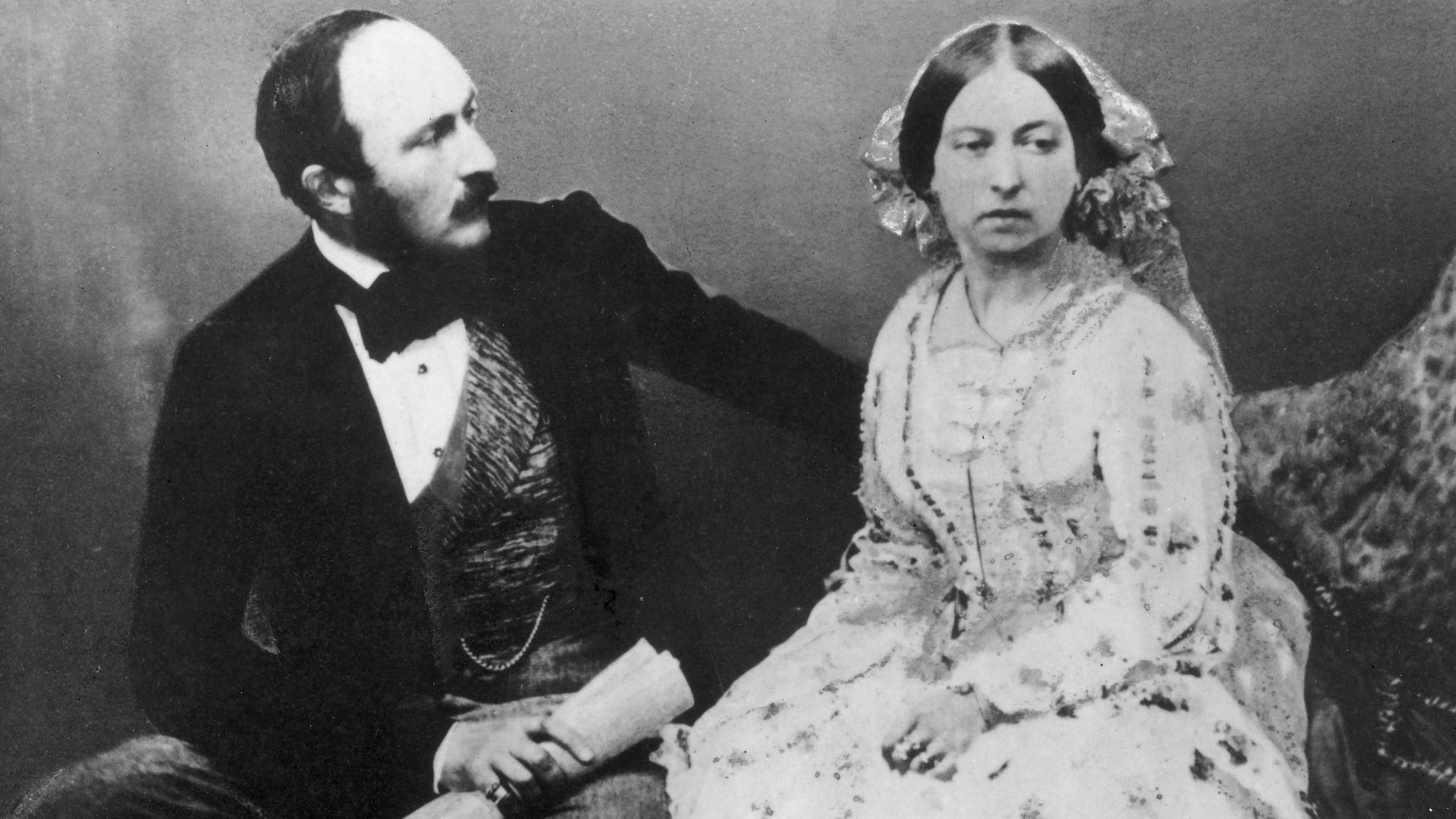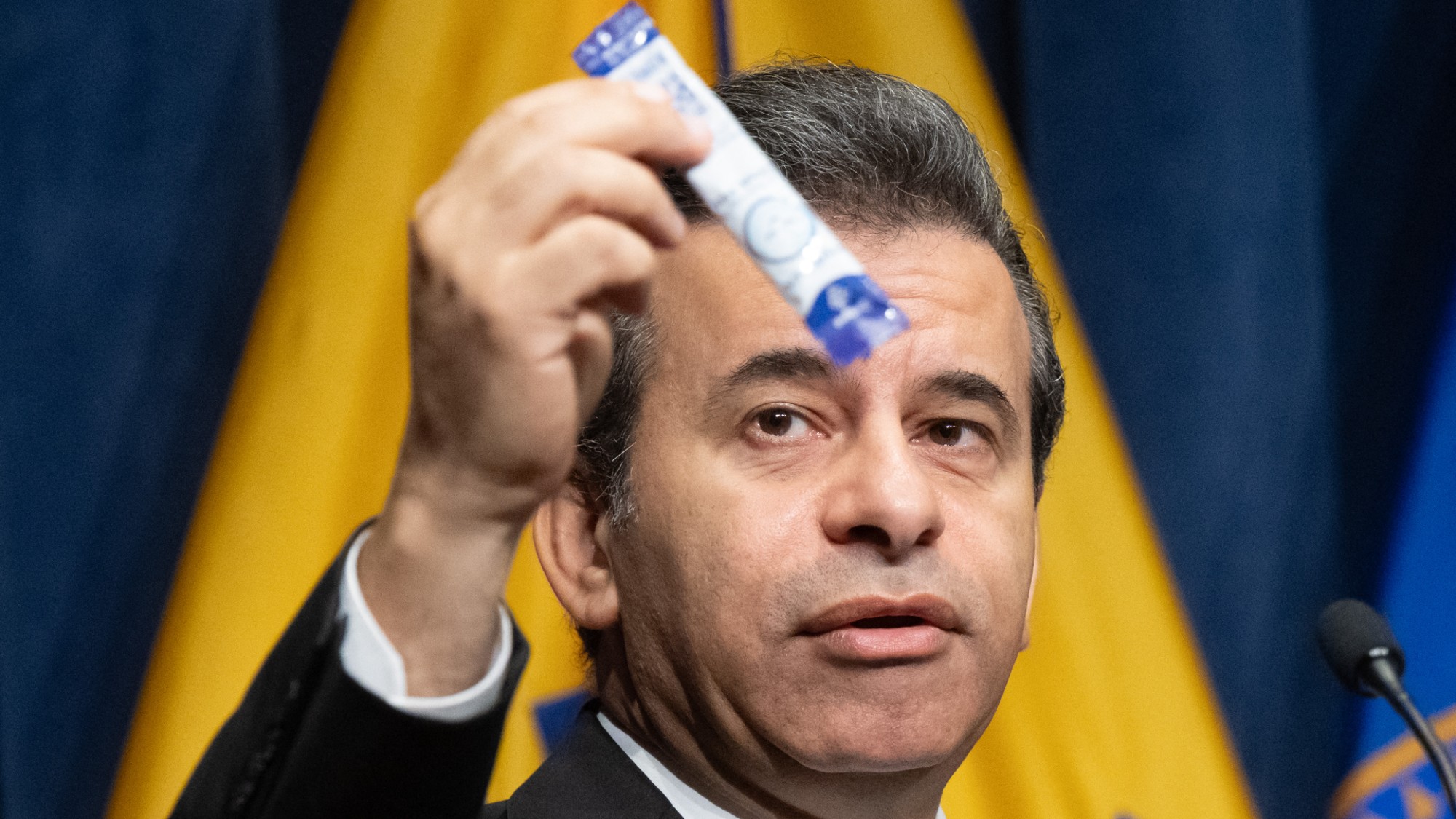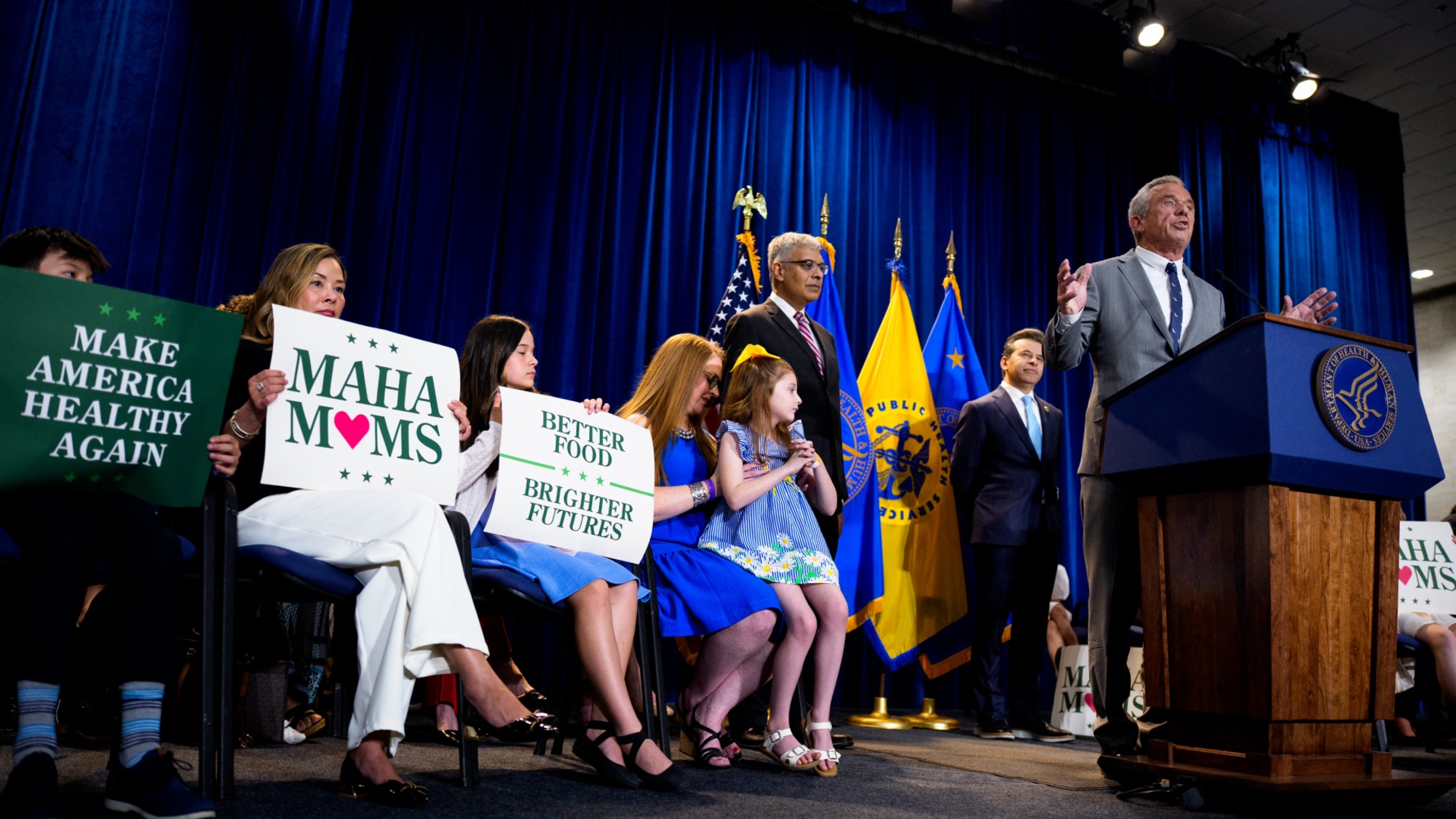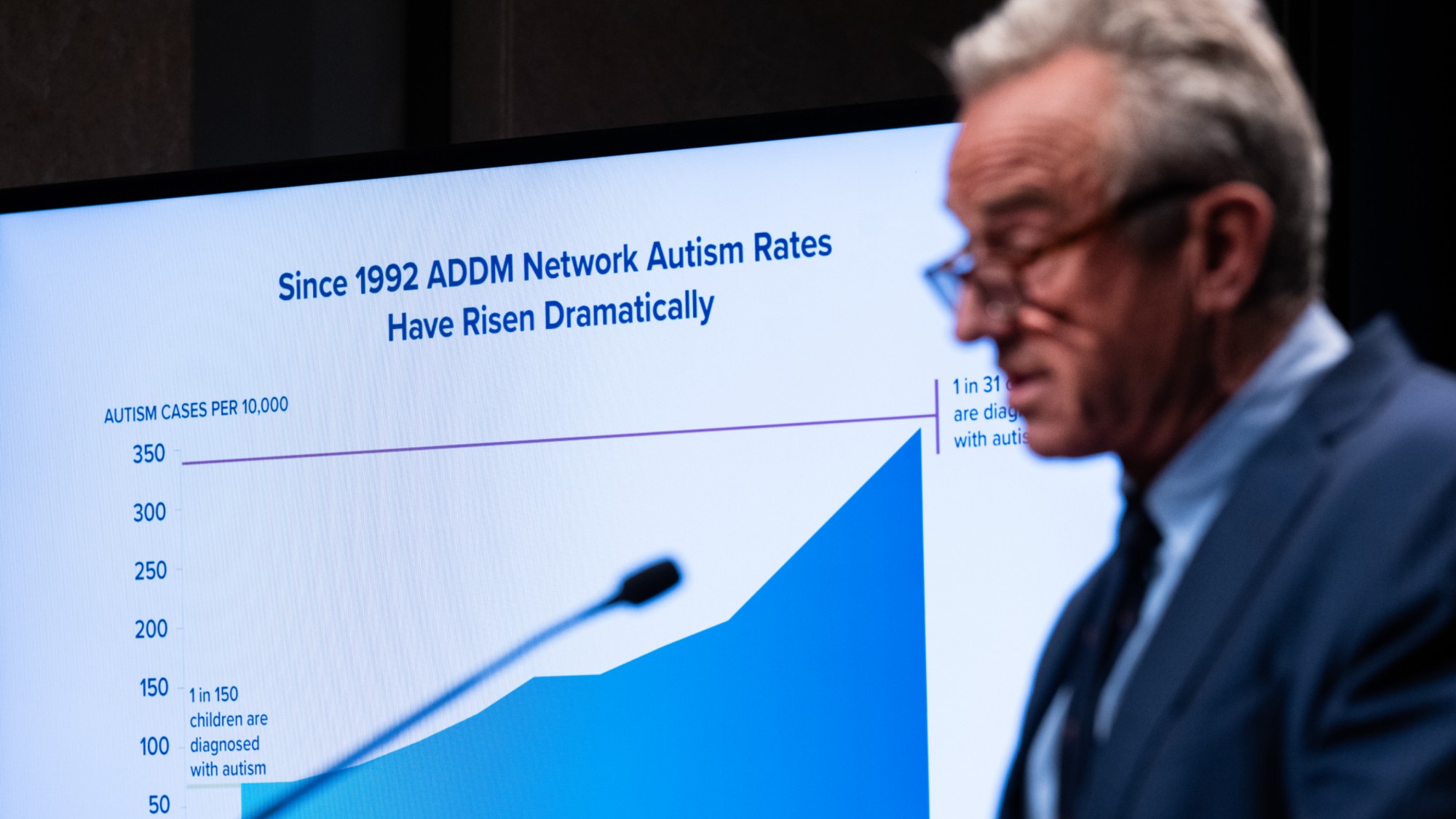Should the UK ban marriage between cousins?
Several Scandinavian nations are banning consanguineous unions, with some calling for Britain to follow suit

A free daily email with the biggest news stories of the day – and the best features from TheWeek.com
You are now subscribed
Your newsletter sign-up was successful
The UK government is under pressure to outlaw marriages between cousins following moves in several Scandinavian countries to ban such unions.
The Tory MP Richard Holden has tabled a question for the justice secretary, asking her to assess the potential merits of outlawing consanguineous marriages. Holden said there are "serious concerns" around the health risks of children born to parents who are biological relatives.
Keeping it in the family
A consanguineous marriage is one in which the couple are biologically related as second cousins or closer.
The Week
Escape your echo chamber. Get the facts behind the news, plus analysis from multiple perspectives.

Sign up for The Week's Free Newsletters
From our morning news briefing to a weekly Good News Newsletter, get the best of The Week delivered directly to your inbox.
From our morning news briefing to a weekly Good News Newsletter, get the best of The Week delivered directly to your inbox.
Marriage between cousins has been legal in Britain "since the Reformation", wrote Justin Marozzi for The Spectator. Charles Darwin and Queen Victoria were among the eminent Britons who married their cousins, a history which includes multiple royal unions.
Attitudes to such relations have varied "throughout Western history", said The Economist. As shown in novels such as "Mansfield Park" and "Wuthering Heights", Georgian and Victorian England was certainly "not too squeamish" about the concept. Historically, and up to the present day in some parts of the world, marriage between cousins has been encouraged as it "secures wealth and reinforces social connections" within a family. There is also an "optimistic assumption" that having existing relatives as in-laws reduces the odds of wider family friction.
Today, an estimated 10 to 15% of newborns worldwide have consanguineous parents, said Deutsche Welle, largely because cousin marriage is "socially embedded" in many regions of the world, including South Asia, North Africa and the Middle East.
Children at risk
Consanguinity rates within the British Pakistani community are between 40 and 60%, said Patrick Nash, an expert on religious law and director of the Pharos Foundation social science research group. A briefing exploring child deaths in Bradford, Birmingham and the London borough of Redbridge, found that "20-40%" of them may be "due to genetic disorders associated with consanguinity and chromosomal conditions".
A free daily email with the biggest news stories of the day – and the best features from TheWeek.com
But "while the practice persists" among British Pakistanis, said DW, it "appears to be declining". In a study of 13,500 families between 2007 and 2011, the Born in Bradford project found 60% of couples of Pakistani heritage were either first cousins, second cousins or other blood relatives, but a follow-up study between 2016 and 2020 found "sharp decline" – from 60% to 40%. Among couples of Pakistani heritage where both parties were born in the UK, rates of consanguineous marriage were even lower, around 30%.
Those who are in such marriages often "choose to keep quiet", said The Economist, because the "ick" factor "prevails in Western culture", and the "family dynamics can be difficult to explain to others".
Time for change?
Earlier this year, Norway, Sweden and Denmark moved to ban cousin marriage. Uzbekistan also plans to outlaw it. In the United States, Tennessee banned cousin marriage in April, joining 24 other US states which do not allow first cousins to marry.
As to whether the UK should follow suit, a recent debate in Cambridge, considered counter arguments to a ban "in detail", said Marozzi in The Spectator. This includes the "relatively low risk of genetic disorders and diseases", the possibility of "stigmatising minorities" as well as the "fundamental question of personal autonomy".
In a response to Holden's parliamentary question, Alex Davies-Jones, the Parliamentary Under-Secretary of State at the Ministry of Justice, said the government would consider the issue. This means they will "lob it into the long grass", Marozzi said. But evidence indicates that the British Pakistani community "is already having the conversation", regardless of the legal status of cousin marriage.
Chas Newkey-Burden has been part of The Week Digital team for more than a decade and a journalist for 25 years, starting out on the irreverent football weekly 90 Minutes, before moving to lifestyle magazines Loaded and Attitude. He was a columnist for The Big Issue and landed a world exclusive with David Beckham that became the weekly magazine’s bestselling issue. He now writes regularly for The Guardian, The Telegraph, The Independent, Metro, FourFourTwo and the i new site. He is also the author of a number of non-fiction books.
-
 The ‘ravenous’ demand for Cornish minerals
The ‘ravenous’ demand for Cornish mineralsUnder the Radar Growing need for critical minerals to power tech has intensified ‘appetite’ for lithium, which could be a ‘huge boon’ for local economy
-
 Why are election experts taking Trump’s midterm threats seriously?
Why are election experts taking Trump’s midterm threats seriously?IN THE SPOTLIGHT As the president muses about polling place deployments and a centralized electoral system aimed at one-party control, lawmakers are taking this administration at its word
-
 ‘Restaurateurs have become millionaires’
‘Restaurateurs have become millionaires’Instant Opinion Opinion, comment and editorials of the day
-
 This flu season could be worse than usual
This flu season could be worse than usualIn the spotlight A new subvariant is infecting several countries
-
 Why the FDA wants to restrict kratom-related products
Why the FDA wants to restrict kratom-related productsIn the Spotlight The compound is currently sold across the United States
-
 RFK Jr.'s phase-out of artificial food dyes could face industry pushback
RFK Jr.'s phase-out of artificial food dyes could face industry pushbackIn the Spotlight Will companies comply without an outright ban?
-
 RFK Jr.'s focus on autism draws the ire of researchers
RFK Jr.'s focus on autism draws the ire of researchersIn the Spotlight Many of Kennedy's assertions have been condemned by experts and advocates
-
 How Trump's executive orders are threatening scientific research
How Trump's executive orders are threatening scientific researchIn the spotlight Agencies are purging important health information
-
 Avatar therapy: a groundbreaking treatment for psychosis?
Avatar therapy: a groundbreaking treatment for psychosis?In the Spotlight Study reveals digital characters can help patients 'push back' against distressing voices
-
 Pink cocaine: the new drug cocktail responsible for an increasing number of deaths
Pink cocaine: the new drug cocktail responsible for an increasing number of deathsIn the Spotlight The substance has been linked to the death of Liam Payne and named in a lawsuit against Sean 'Diddy' Combs
-
 The rise of pronatalist tech bros
The rise of pronatalist tech brosIn the Spotlight 'Mix of narcissism, altruism and dreams of immortality' behind drive to reproduce exhibited by likes of Elon Musk